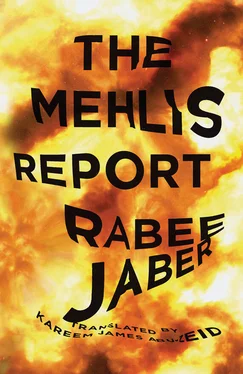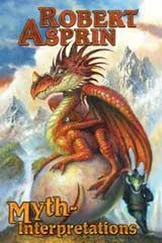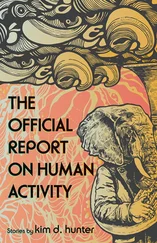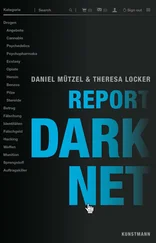The bottle was made of glass, like a Pepsi bottle. I drank it and set it down on the edge of the sidewalk. The Abd Clock Tower was a gift from Michel Abd to the city of Beirut in 1933. I love standing there. I love that square paved with black volcanic rock. During the war the whole area was a land of ghosts — a place of mines and death and barricades and burnt shops. I felt at peace as I stood in Parliament Square, at the Place de l’Étoile . I was not afraid. I was not riding in an armored car. I was not looking for my bodyguards or for familiar faces. Tranquility filled my body. Rarely could I walk through these streets at my leisure this way, the way I loved. I wanted to walk and look at the city.
I walked down Hussein al-Ahdab Street until the fountains near the Municipality. I could not hear the rippling of those fountains from inside the car. Now I could hear them. Eleven fountains. I stopped and looked at the clouds crossing the windows of the Municipality Building: It was built in the days of the French Mandate. It burned down during the long Civil War, and was later restored. The sky was vast and blue. Cars sped down Rue Weygand. The traffic’s always heavy on that street. It cuts horizontally through the old walled city of Beirut from the ancient gate of Bab Idris to that of Bab al-Saray, the Palace Gate. It’s a narrow street: there used to be a market there the people called souq al-fashkha .
I know many things now. I have more time to read. It was a clear day. The air was cold, but not unpleasantly so. I crossed Rue Weygand and turned onto Foch Street. But before I crossed Weygand I turned around and cast a final glance at the clock tower on Parliament Square. It was ten minutes to one in the afternoon.
The construction site of the Bank of Kuwait and the Arab World was on my right. On my left Youssef al-Rami Street, then Saad Zaghloul. The building with the Bank of Beirut — and the Springfield and Timberland stores — was splendid. I remembered what it looked like before it was restored. I remembered the crumbling balconies. I remembered the sculpted crowns covered in soot. Those stores are lustrous now. The walls are polished. Only the carefully trained eye can detect the traces of shrapnel and war.
Mutran Street on my left connects Foch to Allenby. The yellow Sky Gate hot air balloon, tethered to the ground, towers up over there, in the air above the Phoenicia Hotel and The Four Seasons. The construction is always starting and stopping, but a day will come when it is finished. The delays are temporary, all of them. One day the obstacles will be overcome. A building with a tall entrance: “1925” is engraved on its threshold. Those buildings.
The sea appeared. The Normandy Landfill appeared. And the fence of the naval base. The Foch Residence construction site. I looked at the map. There was number 7: the intersection of Foch and Al-Mina streets. And there was number 2: the Phoenicia. And the Beirut Tower? Where was the number for the Beirut Tower? A flock of pigeons passed by and I turned to follow it with my eyes. I forgot about the map (a handout from Solidere) and about the numbers. The pigeons flew through the air and hovered around the construction sites, hovered above the buildings and minarets. All the sites were still. It was as if the city were sleeping. I looked at my watch. Ten minutes to one in the afternoon. Was that possible? My watch hadn’t moved.
I walked from Foch Residence along the length of the sea road, toward West Beirut. I remembered that area from the war. I remembered the burnt soil and the stray dogs and the mice. I remembered the flies. People were afraid to pass through there because of the flies. I know a lot of things now. I’ve come to have time. I used to know things, but I’ve come to know more. I know things differently now. A lot of things. Pigeons have red feet. I did not sweat as I walked and looked at the birds. It was strange I wasn’t sweating. I was wearing a suit, and the sun was strong. It was February, true, but the sun was strong that day.
The Normandy Landfill site was still as well. We’ve got a wonderful Japanese design for the garden. A few years ago the smell of waste was awful here. Now the smell’s not so bad. A white cloud was swimming in the heights — a small cloud that looked like cotton. I could not hear the sea. The sea was still that day. The city too. Where were the people?
I passed by the seafront construction sites. I couldn’t see any workers. Where were the steel helmets and gloves and welding goggles? Was everyone on break? Were they eating now? I looked at my watch. Strange: it was still ten minutes to one.
I saw a flock of gulls fly over the yachts and land on the roof of the Saint Georges. I hadn’t reached it yet, but I could see the pink hotel from here. The white curtains were visible through the windows of its six floors. The gulls took off again and cut through space, disappearing over the sea. I wanted to drink something. All the walking had made me thirsty. I needed to find some more water. Should I go into a store and buy some? But I didn’t have any money with me. My bodyguards carry the money.
I stood and looked at the steel sign at the entrance to the Normandy Landfill. I read the words and dates. I turned and looked at the yachts, and at the Saint Georges and the Phoenicia. What was I looking for? I felt strangely at peace. I wasn’t looking for anything. I didn’t even really need water. I simply wanted to look at this city. To look at this sky. To look at these birds.
I stood and looked at Beirut. The sea was still as glass. Mount Sannin was crowned with snow. Sannin was white, and the sea was blue, and Beirut filled my eyes. I didn’t need anything. I looked at my watch: ten minutes to one in the afternoon.
How was that possible? We left the Étoile several minutes ago and it was still the same time.
I looked up at the sky. I did not see the sun in its blue vault. I saw the moon, as white as bone. A cascade of milky light streamed out, filling my sight: it was as sweet as water.
I closed my eyes.












